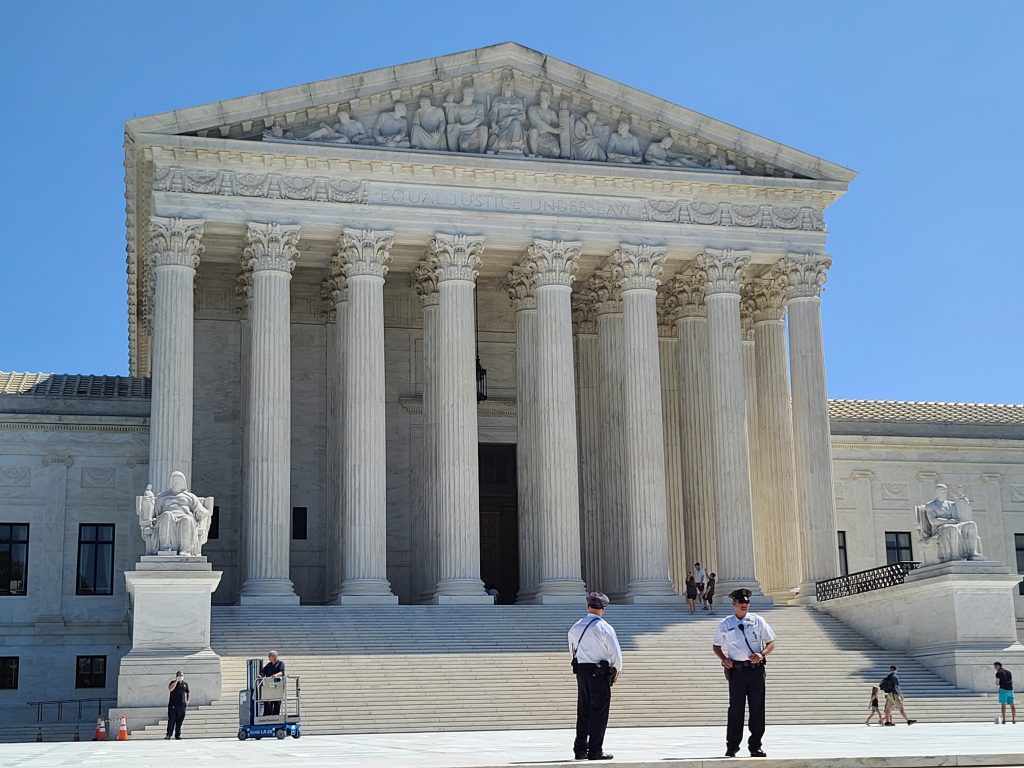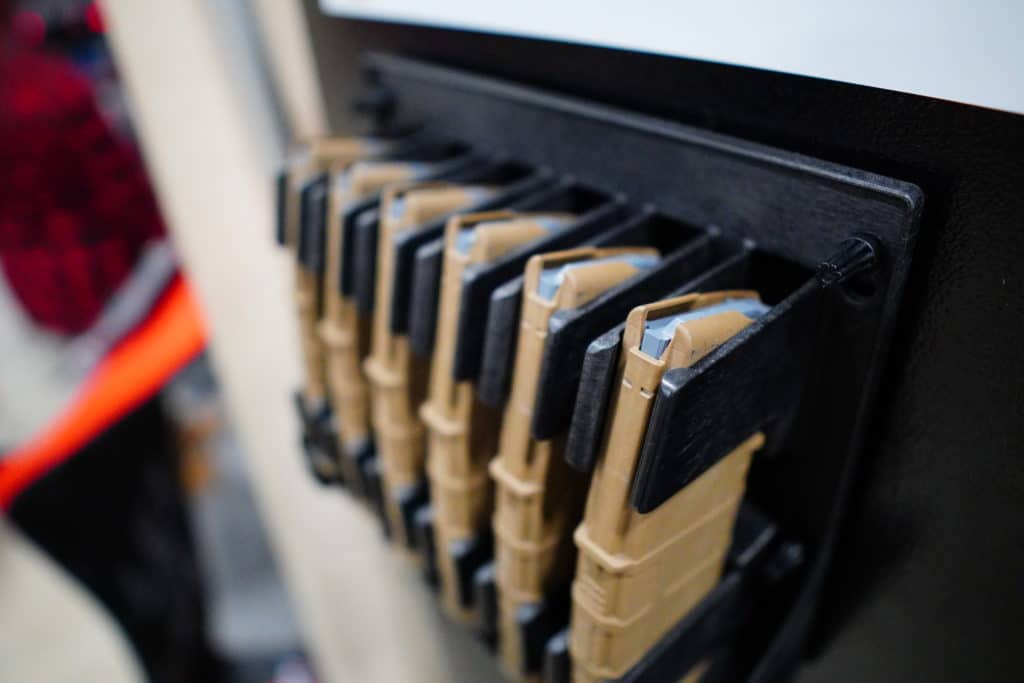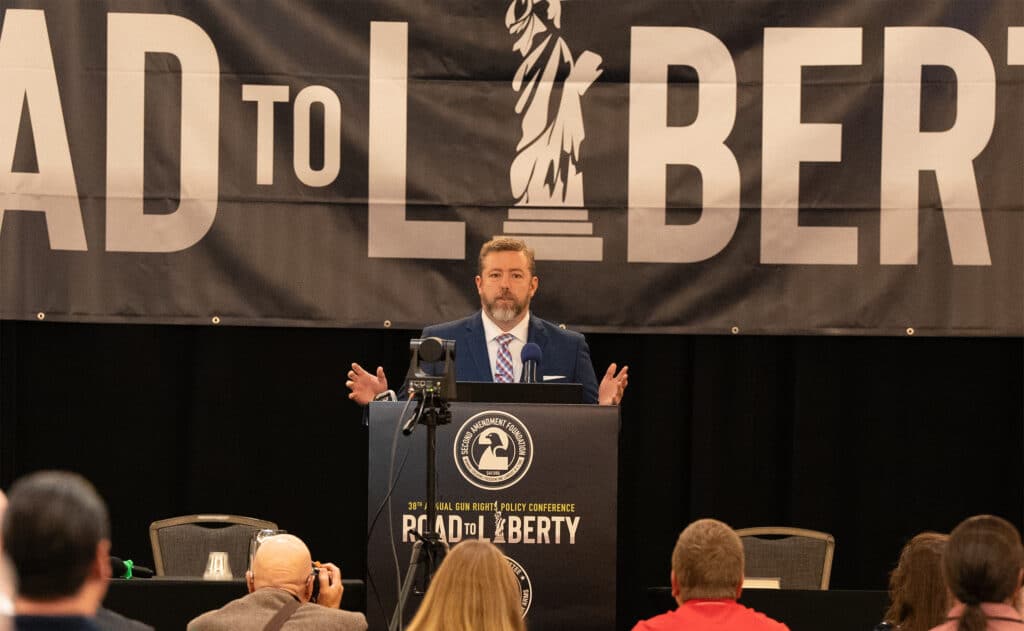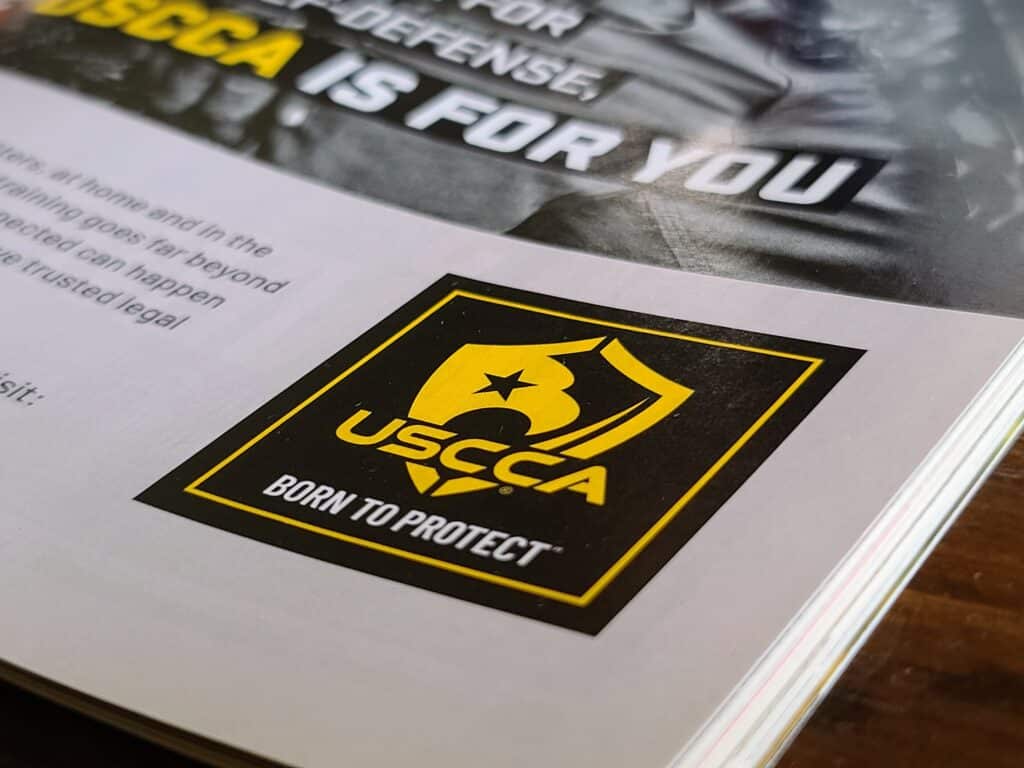This week, we turn our attention back to the highest court in the land.
The Tenth Circuit just upheld the felon gun ban. And it was in a case that was almost identical to the one where the Third Circuit came to the opposite conclusion. Both dealt with non-violent felons who were convicted of low-level fraud and served no jail time.
But, as Contributing Writer Jake Fogleman explains, the lower courts used very different reasoning to come to very different decisions. So, it seems SCOTUS is going to have to weigh in here sooner or later.
We also got a ruling in a case we know the Supreme Court is tracking closely. Duncan v. Bonta, the case against California’s magazine ban that SCOTUS remanded in the wake of Bruen, has come back. Judge Roger Benitez ruled once again that the ban violates the Second Amendment.
The courts aren’t the only place where we saw significant developments. The nation’s largest concealed carry association has expanded its effort to be a political player. I have more details from my interview with the head of USCCA’s new non-profit that provides deeper insight into the strategy she’s pursuing.
Plus, Cody Wilson joins the podcast to discuss Defense Distributed’s new AI that can help you build a gun. And I talk about my time at the Gun Rights Policy Conference.

Analysis: SCOTUS Will be Forced to Weigh in on Non-Violent Felon Gun Rights [Member Exclusive]
By Jake Fogleman
It’s becoming impossible for the Supreme Court not to weigh in on whether felons, or at least the non-violent ones, can own guns.
Since the Court handed down its landmark ruling in New York State Rifle and Pistol Association v. Bruen last June, lower courts across the country have been grappling with how to apply the case’s text, history, and tradition-based approach to deciding Second Amendment challenges—often arriving at competing conclusions. The constitutionality of banning felons from gun ownership for life has been among the most prominent questions they’ve addressed.
The federal felon-in-possession prohibition, or 18 U.S.C. § 922(g)(1) as it is formally known, permanently strips the Second Amendment right to keep and bear firearms from anyone who has been convicted in any court of a crime punishable by more than a year in prison. It’s a prohibition that has been relatively uncontroversial for most of its history, at least as far as American gun control laws go. It’s also been used prolifically by law enforcement. According to federal data from the U.S. Sentencing Commission, the vast majority of federal firearms law offenders (79 percent) are convicted under 922(g)(1).
However, in recent years, a growing body of gun-rights advocates, civil libertarians, and criminal justice reformers have taken an increasingly skeptical eye toward the prohibition, particularly regarding non-violent felons. That movement, combined with the Bruen decision’s burden-shifting test requiring the Government to demonstrate that its gun laws are constitutional, have placed the prohibition on a crash course toward imminent Supreme Court review.
This could happen in one of two ways. The more straightforward one is the Court agreeing to take a case on the felon-in-possession ban.
Competing rulings out of the federal circuit courts provide the likely vehicle for this. To date, three federal appellate courts have handed down decisions concerning the validity of the federal ban in light of Bruen, and they are currently split 2-1 on upholding it under the Second Amendment.
The most recent contribution came from the Tenth Circuit Court of Appeals, where a three-judge panel last week declined to determine whether the ban implicated the text of the Second Amendment or comported with the nation’s historical tradition of gun regulation, as the Bruen test requires. Instead, the panel found that the Supreme Court’s assurances in Heller and Bruen that those cases did not immediately call the ban into question were sufficient for determining that a Utah woman convicted of felony bank fraud for writing a fraudulent $498 check at a grocery store when she was homeless could be disarmed for life.
“Though Bruen created a new test for determining the scope of the Second Amendment, the Court didn’t appear to question the constitutionality of longstanding prohibitions on possession of firearms by convicted felons,” Judge Robert E. Bacharach, a Barack Obama appointee, wrote on behalf of the panel in Vincent v. Garland.
That analysis was nearly identical to the one done by an Eighth Circuit panel in June when it arrived at the same conclusion concerning a Minnesota man with prior drug convictions. It, too, relied heavily on Justice Antonin Scalia’s remarks in Heller that the Court was not casting doubt on the constitutionality of “longstanding” firearms prohibitions, including the one for convicted felons.
“Given these assurances by the Supreme Court, and the history that supports them, we conclude that there is no need for felony-by-felony litigation regarding the constitutionality of § 922(g)(1),” Judge Steven Colloton, a George W. Bush appointee, wrote in U.S. v. Jackson.
However, between those two decisions, an en banc panel of the Third Circuit ruled that the federal prohibition on felons owning firearms was unconstitutional as applied to a Pennsylvania man with a nearly 30-year-old conviction for lying on a food stamp application.
“We agree with Range that, despite his false statement conviction, he remains among ‘the people’ protected by the Second Amendment,” Judge Thomas Hardiman wrote for an 11-4 majority in Range v. Garland. “And because the Government did not carry its burden of showing that our Nation’s history and tradition of firearm regulation support disarming Range, we will reverse and remand.”
Given that the Range decision called into question the validity of a relatively longstanding federal criminal statute, there’s a high probability that the Department of Justice (DOJ) will appeal. That makes it the most likely vehicle for the Supreme Court to hear a case specifically focused on 922(g)(1). The DOJ has not yet filed a cert petition in the case, but the Supreme Court extended its deadline to do so until October 5th.
But even if the DOJ decides not to risk an appeal to a court potentially skeptical of federal criminal statutes, a Second Amendment case the High Court has already agreed to take provides an opportunity for it to opine on 922(g)(1) ‘s legality.
The Court agreed to hear U.S. v. Rahimi this Fall, and though that case concerns an entirely separate prohibiting offense—922(g)(8) or the federal gun ban for those under domestic violence restraining orders—anything but the narrowest of rulings would impact how courts understand 922(g)(1) moving forward.
That’s because either way the Court rules on the constitutionality of the restraining order gun ban, it’s likely to articulate a framework for deciding who may or may not be disarmed under the Second Amendment. That will necessarily impact how future courts look at felon-in-possession laws, whether or not the Court addresses 922(g)(1) by name. Ultimately, the Court could write its decision broadly and impact the rest of the federal prohibiting offenses to avoid having to take future challenges on a case-by-case basis.
Felon-in-possession prohibitions are one of the bedrock gun-control laws on the books today. That federal appeals courts are coming to opposite conclusions on the ongoing viability of the ban necessitates the Supreme Court weighing in. Whether it does so just by reiterating its Heller dicta in Rahimi or by formally articulating how to perform the Bruen test for prohibited person cases, it’s almost a certainty that the High Court will address the future of felon gun rights in the near future.

California Ammo Mag Ban Ruled Unconstitutional
By Stephen Gutowski
The Golden State’s ban on magazines that hold more than ten rounds of ammunition violates the Second Amendment.
That’s the ruling United States District Court Judge Robert Benitez handed down on Friday. He found the restriction on so-called high-capacity magazines failed the test for determining the constitutionality created by the Supreme Court last year.
“This case is about a California state law that makes it a crime to keep and bear common firearm magazines typically possessed for lawful purposes,” Judge Benitez wrote in Duncan v. Bonta. “Based on the text, history, and tradition of the Second Amendment, this law is clearly unconstitutional.”
The ruling pushed the fight over ammo magazines back up the federal courts on a path that likely ends at the Supreme Court of the United States (SCOTUS). It is the first of the four cases the High Court granted, vacated, and remanded in the wake of its New York State Rifle and Pistol Association v. Bruen decision to reach a verdict on reconsideration. That means SCOTUS is watching the case closely and is now one step closer to garnering the High Court’s final decision.
The next stop for the case will be the Ninth Circuit Court of Appeals. This will be the second time the appeals court hears an appeal of a decision from Judge Benitez striking down the magazine limit. In 2021, an en banc panel reversed his decision and upheld the restriction as constitutional.
“Nothing in the record suggests that the restriction imposes any more than a minimal burden on the Second Amendment right to keep and bear arms,” Judge Susan P. Graber wrote for a 7-4 majority of the Ninth Circuit. “Similarly, the record suggests at most a minimal burden, if any burden at all, on the right of self-defense in the home.”
That decision relied on the previous two-step test lower courts used to balance the state’s interest against infringing citizens’ Second Amendment rights. SCOTUS decried the old test and instituted a new one in 2022’s Bruen decision. Instead, it relied on determining whether any modern regulation is a close fit with those that existed when the Second Amendment was written.
Judge Benitez, who put a 10-day stay on his order in anticipation of an appeal, found the government’s proposed analogues for their magazine ban didn’t pass muster.
“Government remains fixed on the notion that it alone can decide that anything larger than a 10-round magazine is not ‘suitable’ for a citizen to have. But, there are no analogous cases in our history,” he wrote. “There are no cases where American government dictated that lever-action rifles were unsuitable because single shot rifles were good enough, or revolvers were unsuitable because derringers were good enough. These choices have always belonged to the People to decide for themselves how much firepower they need.”
In fact, he said the laws that did regulate ammunition during the Founding Era operated in precisely the opposite way the modern limit does.
“The right to have firearms for social security was important at the time the Constitution was adopted,” Benitez wrote. “There were many enemies of the young nation. An armed citizenry provided a much-needed deterrent effect. Early citizens remembered how the Minutemen of Lexington and Concord, Massachusetts, by assembling as a militia, fought back against the hostile British march to take away guns and gunpowder in April 1776.”
“These and other citizen militia laws demonstrate that, contrary to the idea of a firing-capacity upper limit on the number of rounds permitted, there was a legal obligation for the average citizen to have at least 20 rounds available for immediate use,” he continued. “There were no upper limits like § 32310; there were floors and the floors were well above 10 rounds. California’s large capacity magazine ban is a diametrically opposed analogue.”
California Governor Gavin Newsom (D.), who is attempting to organize a constitutional convention to partially repeal the Second Amendment, decried the decision. He lobbed personal attacks at Judge Benitez, labeling him “an extremist, right-wing zealot with no regard to human life.”
“Wake up, America,” he tweeted. “Our gun safety laws will continue to be thrown out by NRA-owned federal judges until we pass a Constitutional Amendment to protect our kids and end the gun violence epidemic in America.”
The NRA responded by saying the ruling should be a “wake-up call” for the governor.
“You took an oath of office to defend the entire Constitution of the United States — Second Amendment included,” the group tweeted. “Ambition can be blinding…”
Other advocates celebrated the ruling as a win for gun rights that could create a domino effect that sees similar bans in other states fall.
“We are delighted with this ruling,” Alan M. Gottlieb, founder of the Second Amendment Foundation, said in a statement. “The decision affects Washington Attorney General Bob Ferguson’s defense against a lawsuit challenging a similar ban in his state, which is also in the Ninth Circuit, as well as bans in other states. Ultimately, we expect this issue will have to be decided by the U.S. Supreme Court.”
Judge Benitez concluded his opinion by arguing the Second Amendment was “a freedom calculus decided long ago by our first citizens” that valued individual rights over the “subservient security” of the British monarchy or “smothering safety of domestic lawmakers.” He said that freedom was worth fighting for during the revolution and preserving today.
“One government solution to a few mad men with guns is a law that makes into criminals responsible, law-abiding people wanting larger magazines simply to protect themselves,” he wrote. “The history and tradition of the Second Amendment clearly supports state laws against the use or misuse of firearms with unlawful intent, but not the disarmament of the law-abiding citizen. That kind of a solution is an infringement on the Constitutional right of citizens to keep and bear arms.”
California Attorney General Rob Bonta (D.) has already filed a notice of appeal. A Ninth Circuit panel will soon decide whether to grant an extended stay on the ruling pending that case.

Speaking to the Gun Rights Policy Conference
On Saturday, I attended the Second Amendment Foundation’s annual conference. I was able to get some face time with a bunch of Reload Members while I was there, which was the best part. It’s always good to get to talk with the people who believe in what we’re doing here at the Reload enough to pay to make it possible.
I also enjoy GRPC because it’s a pretty good representation of people who are committed gun-rights activists. The folks who come to this are the kind of people who are dedicated to the cause and really provide the legs for the movement. And it’s always important to understand what they’re focusing on and what they’re passionate about at any given moment because that’s likely to be where gun news goes next.
I was also glad to be able to share some of my thoughts on how we can improve media reporting on firearms. The crowd seemed receptive to what I had to say, which is always good since I don’t do a ton of public speaking. Plus, Active Self Protection’s John Correia (he’s the skilled photographer who captured the picture above) took me to grab some In-N-Out Burger afterward. That’s hard to beat as far as celebration meals go!
Podcast: A New AI Promises to Help You Build a Gun (Feat. Cody Wilson) [Member Early Access]
By Stephen Gutowski
This week, we’re looking at a new AI product that promises to do what ChatGPT can’t: talk to you about building guns.
The cleverly named GatGPT went into beta this week. I got an early look at it. And, now, we’re having the head of the company behind it on the show to explain why they created it.
Defense Distrubuted’s Cody Wilson said the end goal is to build an alternative to big tech initiatives in search and advertising. He argued AI could be a consequential tool in that effort. He said the kind of censorship ChatGPT has been saddled with, which keeps it from talking about guns and other topics its parent company OpenAI views as controversial, is holding back the mainstream efforts and gives GatGPT a potential edge.
However, it does still suffer from some of the same accuracy issues other major AIs struggle with. Wilson said they hope to continuously improve GatGPT with beta testers and high-quality data from sections of the online firearms community.
Wilson has garnered media attention and controversy since he first printed a gun back in 2013. He managed to retain his gun rights and take back control of Defense Distributed despite pleading guilty to a sex crime in 2018. His latest move shows he’s remained as media savvy and controversial as ever, though.
Unlike many other AI startups, Wilson said he isn’t looking to sell hype and bring in investors at unrealistic valuations. But he is hoping to create a viable business model around the uncensored AI model. One he hopes can benefit the entire firearms industry, which he says has been “ghettoized” by large tech platforms for over a decade.
Plus, Contributing Writer Jake Fogleman and I discuss USCCA’s latest foray into the political realm.
You can listen to the show on your favorite podcasting app or by clicking here. Video of the episode is available on our YouTube channel. Reload Members get access on Sunday, as always. Everyone else can listen when the episode goes public on Monday.

The Strategy Underlying USCCA’s New Political Arm [Member Exclusive]
By Stephen Gutowski
The head of the United States Concealed Carry Association’s (USCCA) new political advocacy group has a new plan for expanding gun rights.
Katie Pointer Baney, executive director of the group’s new Action Fund, spoke exclusively with The Reload to explain her vision for the 501(C)(4) non-profit. She emphasized USCCA’s commitment to using the group for in-person activist training and political rallies. But she said the idea is to empower gun owners themselves.
“We’re focused less on saying ‘gun owner vote for A, B, or C,’” Baney told The Reload. “Instead, we’re saying, here are the critical policies; here are the tools and resources necessary for you to make the decision on who you think is best to vote for.”
She said the goal is to build a “2A citizens army.” That’s not an uncommon mission among gun-rights groups. But USCCA’s scale, with over 800,000 paying members, makes it a more realistic short-term goal in the race to shore up the movement as the NRA shrinks in the face of mounting financial and legal issues.
“What we really want to do is create this grassroots 2A citizen army. I think people are generally dismayed and frustrated at the political process. They don’t know where to start. They don’t know how to make a difference. They kind of throw their hands up and are frustrated.”
Baney said a significant focus of the group will be activist training, but that doesn’t mean it will merely sit back and hope the activists they train can figure everything out on their own. Instead, the Action Fund hopes to differentiate itself from the others with its ground game. Instead of focusing entirely on legal fights or national elections, as most other non-NRA gun groups have done, it is planning a more expansive push.
“I think this is where we’re going to be different and complementary to some of the other Second Amendment advocacy groups, and maybe their lead focus is on launching legal challenges, or others are really only focused at the federal level,” she said.
Before joining USCCA, Baney spent a dozen years as a Republican staffer in Congress, including with the House Committee on Homeland Security and former Speaker Paul Ryan’s office. She plans to draw on that political experience and understanding to guide the group’s operation at each level, even in deep blue states.
“For example, the USCCA has a pretty large presence in California, and we’re looking at county-by-county restrictions,” Baney said. “That would be an area where we understand the political realities of winning. A statewide race isn’t necessarily the goal. The goal is being able to make a difference even on a local or county level.”
That doesn’t mean they aren’t going after the swing states, too.
“Of course, it’s different when we look at a state like Wisconsin where we’re headquartered, which is an incredibly purple state, a swing state integral to the 2024 presidential election,” she said. “When we look at gun owners here, when we’re hosting events and having important policy conversations, it’ll be much more geared to a statewide and federal level.”
Baney argued the key to the group’s success will lie in changing the narrative on gun ownership and incorporating the people who bought a gun for the first time in recent years, a cohort that defies many political and demographic stereotypes for who owns a gun in America.
“We know there are millions of new gun owners. We know that we need to change the perception of gun ownership,” Baney said. “And I think the best way to do that is to elevate the voices of everyday gun owners, of their stories. To elevate them in communities with, again, the resources and tools necessary to make a difference.”
In a movement filled with groups that lead with bomb throwing and serving up political red meat, Baney said the Action Fund will focus on common grounds.
“I think you ultimately alienate people if you dive into those hyperpartisan political games,” she said. “I don’t think that’s a win for the Second Amendment. I don’t think that’s a win for gun owners.”
But that doesn’t mean Baney can’t see the obvious breakdown between where the parties stand on guns, with national Democrats having moved to the left and Republicans to the right since even as recently as the Obama Administration.
“Are there political realities to one party over the other largely supporting Second Amendment rights? Yes, of course. We acknowledge and understand that,” Baney said. “But that doesn’t mean that there aren’t Democrats or Libertarians or Green Party or however else you identify your political party affiliation, that doesn’t mean that there aren’t others who support the Second Amendment. And with all of our efforts, what we’re trying to do is broaden this tent of gun ownership.”
Still, despite the group’s growth and incorporation of new demographics, the NRA lost more members last year than the USCCA has ever had. And most of those USCCA members joined before it was doing any political work at all, instead likely looking for the benefits of the group’s “concealed carry insurance.” It remains to be seen whether an approach focused on building a big tent with newcomers as a focus can outperform a more polarizing approach that seeks to extract as much funding and support from your core demographic, even at the cost of those at the fringes of your position.
Baney is confident the USCCA Action Fund can leave a mark.
“The Second Amendment is part of the founding document of our country. It really shouldn’t be partisan or political at the end of the day,” she said. “You take an oath of office when you’re elected to uphold the Constitution. The Second Amendment is part of that.”
That’s it for now.
I’ll talk to you all again soon.
Thanks,
Stephen Gutowski
Founder
The Reload







